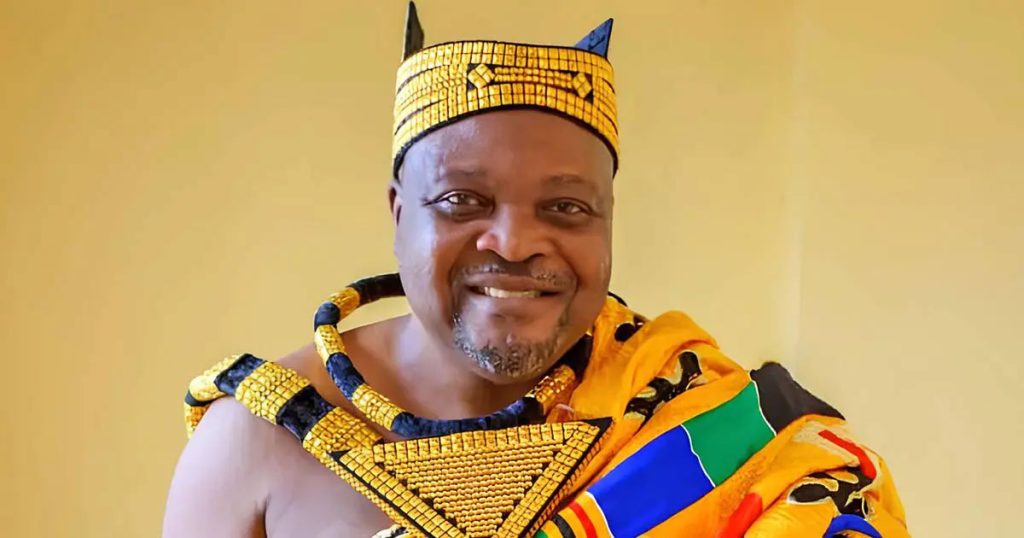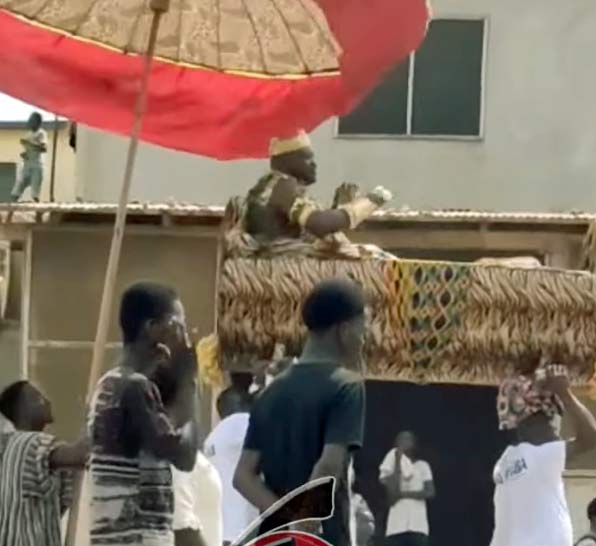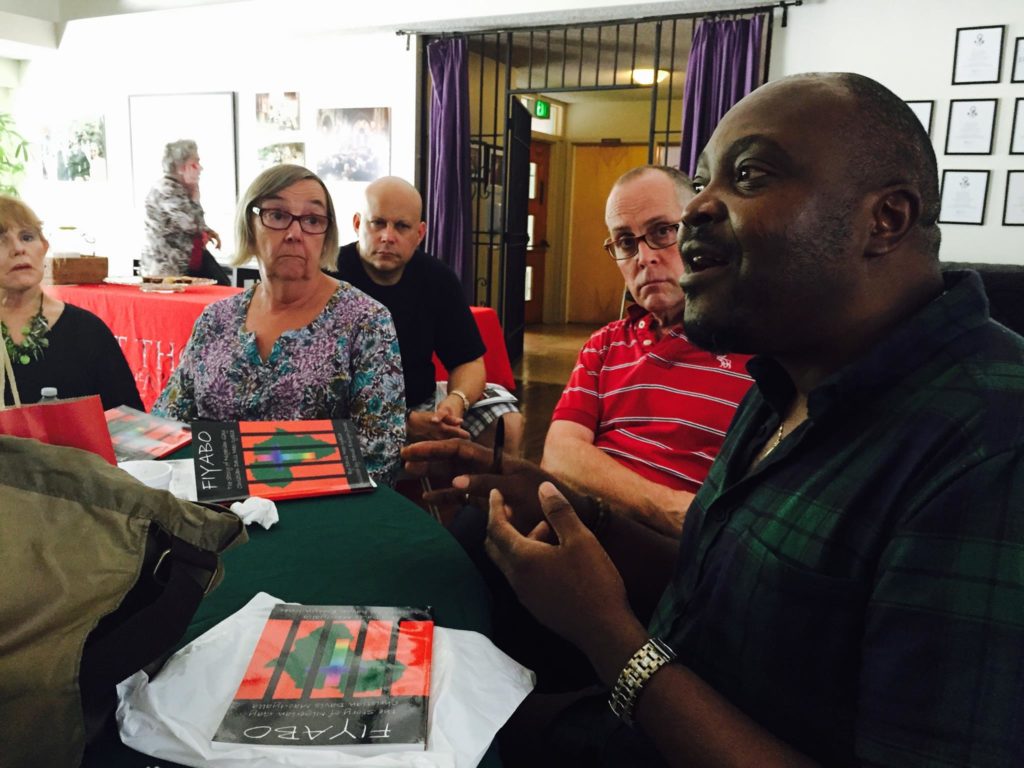This African chief is gay, defiant, visible and yet traditional
Queer spiritual leader Davis Mac-Iyalla embodies defiant visibility and ancestral wisdom

Sitting Tall: Gay chief Davis Mac-Iyalla’s queer leadership in the heart of Ghana
By Nompilo Gwala
Ghana’s Parliament has reopened debate on one of Africa’s toughest anti LGBTQ+ bills, just a year after the previous version expired without presidential assent.
The reintroduced Human Sexual Rights and Family Values Bill seeks to raise prison terms for same-sex intimacy and criminalise “promotion” of queer rights.
Yet even as legislators press ahead, a very different story is unfolding in the fishing town of Yamonransa on the country’s Cape Coast.
There, Nana Kwaku Gyasi, Chief Davis Mac-Iyalla, who is also Executive Director of the Interfaith Diversity Network of West Africa (IDNOWA), is teaching that visibility itself can be an act of love.
“I came out the day I was born”
Mac-Iyalla rejects Western notions of a single, dramatic “coming out.”
“I came out to the world the day I was born,” he tells MambaOnline. “My concept of coming out is about speaking out, using your voice to challenge injustice.”
That conviction first catapulted him into headlines a quarter century ago, when he confronted the Anglican Church of Nigeria over its homophobia.
Today he carries the same fire into Ghanaian life, defiantly testifying before Parliament against the anti-LGBTQ+ bill and preaching inclusion from pulpits across West Africa.

Chosen by the ancestors
[In 2023], Mac-Iyalla was lifted onto a traditional palanquin (also known as a litter, used to carry chiefs, kings, and other important figures during ceremonies and festivals) and installed as Amankorehen (development chief) of Yamonransa.Some rival chiefs tried, literally, to topple him; the palanquin collapsed and tabloids declared that “the gods had rejected” a gay chief.
The activist tells a very different story: “I was chosen by the ancestors,” he says. “If homosexuality were truly a taboo, I would never have been allowed to sit on the stool.” (In Ghanaian chieftaincy, the stool is not just a seat but a central symbol of leadership and authority.)
His stool still stands. So do his community projects: youth apprenticeships, widows’ micro grants and IDNOWA’s dialogue circles that bring imams, pastors and traditional priests to the same table.
Chief Davis Mac-Iyalla being carried on a traditional palanquin used during ceremonies and festivals
An out gay chief changing hearts at village level
While urban activists tweet and rally, Mac-Iyalla works face to face with local “gate keepers”, chiefs, queen mothers and clan elders whose word shapes daily life.
“Most people don’t care about my sexuality,” he explains. “They care about the development I bring.”
That pragmatism is paying off. Elders who once kept silent now greet him publicly; church women volunteer at IDNOWA food drives; parents ask how to protect queer children rather than punish them.
“Changing attitudes takes time,” the chief says, “but conversations have begun, and that is huge for West Africa.”

Faith without fear
For Mac-Iyalla, queer joy is inseparable from spirituality. IDNOWA’s credo is simple: “All humans are born free and equal.”
Founded in 2016, the network spans 11 West African countries, equipping clergy and activists to confront religiously framed homophobia with scripture, history and Ubuntu ethics.
Last September, Mac Iyalla preached in the Netherlands, urging Christians to “reshape the world by speaking out against all forms of injustice.”
A message to queer African youth
“You are not a taboo. You are not ‘un-African’. Same-sex love existed on this continent long before colonial missionaries,” Mac-Iyalla asserts.
“If God and your ancestors are with you, no weapon fashioned by anti gender movements will succeed.”
He urges young people who feel safe enough to “take the risk and be counted,” while reminding them that leadership also happens quietly, in classrooms, clinics and marketplaces where queer Africans already serve.
Why this story matters
Mac-Iyalla’s journey does not erase Ghana’s political peril, but it illuminates a parallel reality: LGBTQ+ Ghanaians are farmers, teachers, chiefs and prayer leaders. They are “everywhere,” as he likes to say, and in many cases they are thriving.
In a season when anti-queer rhetoric dominates headlines, Chief Davis Mac-Iyalla stands as living proof that African tradition can coexist with and celebrate queer identity. His life invites us to imagine a future in which ancestral stools make room for every kind of child born to the continent.
Until that day arrives, he will keep doing what chiefs are meant to do: build, protect and speak the truth. And that, in itself, is queer joy.




The hashtag war on homosexuality in Nigeria